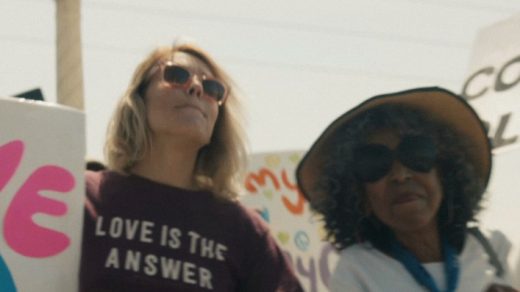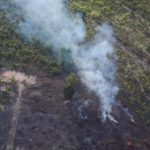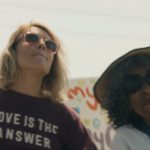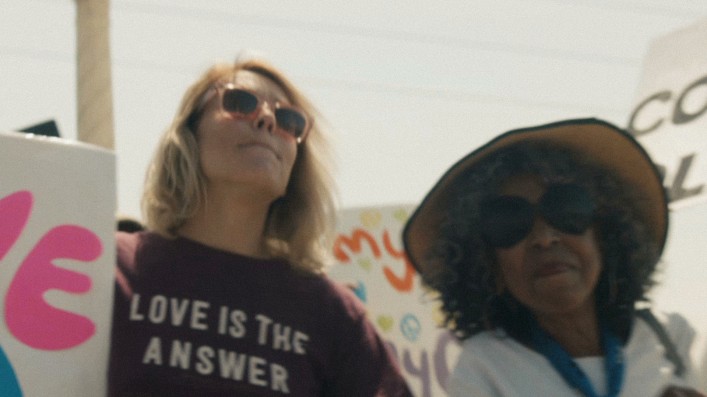Greenpeace Is Targeting Corporations That Use Lawsuits To Silence Protestors In New Campaign
In May 2016, multinational forestry giant Resolute Forest Products filed a $300 million lawsuit against Greenpeace, in what the environmental group says is part of a larger trend of corporations using legal challenges to deter activists and protest in environmental, social, and political issues.
Now Greenpeace is launching what it calls one of its biggest campaigns of its 46-year history, using its court battles with Resolute as a jumping off point to encourage people to use their voices in order to counter multimillion-dollar corporate PR campaigns.
#OurVoicesAreVital, created with Brooklyn-based agency Big Spaceship, aims to illustrate the power of collective protest, featuring actor Amir Talai (The Circle), artist Jet Martinez, and Free the Nipple founder Lina Esco.
Big Spaceship group creative director Steve Street says the goal was to make people aware that Resolute Forest Products is threatening the very existence of Greenpeace. “And if they win, it could greatly impact the free speech rights of individuals and advocacy groups everywhere,” says Street. “We needed a campaign that transcended borders and galvanized a counter voice.”

Part of the $300 million suit in Georgia state court is based on the RICO Act laws aimed at combating organized crime, alleging that as part of the environmental group’s 2013 “Resolute: Forest Destroyer” campaign accusing the company of destroying boreal forests in northern Ontario and Quebec, it had engaged in a “criminal scheme” against Resolute by flying in activists to Georgia to protest a shareholder meeting. Last week, the court said that Resolute had not adequately justified why the case should be heard in Georgia, and it should be moved to California.
The court ruled they failed to show anything defamatory occurred. “Nor do they provide a factual basis from which to infer that [Greenpeace] committed fraud or extortion before, during, or after the trip,” the judge wrote. “The allegations in the complaint, at best, support the inference that defendants organized and held a protest in Augusta.”

It’s just the latest in a long, winding battle between Greenpeace and Resolute. Back in 2013, the Montreal-based company filed a $7 million suit against Greenpeace Canada and two of its staff members in Canadian court over the group’s same campaign against boreal forest logging in northern Ontario and Quebec, accusing Greenpeace of defamation and interfering with its economic relations by threatening its customers. That case is also still ongoing.
Greenpeace says these lawsuits are textbook examples of SLAPPs: Strategic Lawsuits Against Public Participation. “These SLAPP lawsuits from Resolute are absolutely part of a larger problem,” says Joanna Kerr, executive director of Greenpeace Canada. “There has been a rise of SLAPP suits around the world, designed to intimidate through expensive and time-consuming litigation that has the effect of silencing free speech.”
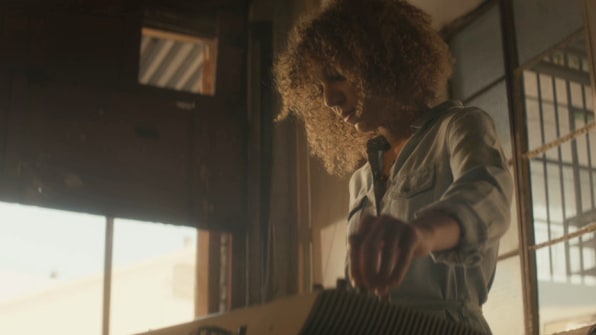
Kerr points to a recent example in Uniontown, Alabama, in which a company hit the locals who were protesting its coal ash landfill with a $30 million slander suit. “And even though the case was meritless,” says Kerr. “They might have succeeded in silencing them without the intervention of the ACLU.”
The new Greenpeace campaign will also roll out a large social media effort that drills further into the way some corporations strategically work to stop those who speak out against them.
UPDATE: I should have reached out to give Resolute the opportunity to respond to the accusations in this Greenpeace campaign, even though my focus was on the launch of the ad campaign itself, not the merits of the case between Greenpeace and Resolute. Seth Kursman,
vice president of corporate communications, sustainability and government affairs for Resolute has since written a response to this story, excerpted below.
“As our legal filings document, Greenpeace has devoted years to a campaign of public misrepresentations about our forestry practices, impersonated employees, initiated cyber-attacks on our customers, and harassed companies we do business with, threatening them with similar smear campaigns. They published staged photos and video falsely pretending to show forest areas impacted by our company when in reality those areas were impacted by natural causes.”
“As for Greenpeace posturing as free speech martyrs, that too falls apart on closer examination… They have publicly denounced the Supreme Court ruling in the Citizens United case and have applauded a group of attorneys general for a RICO investigation launched against groups Greenpeace opposes on environmental issues. That position stands against the ACLU, Free Speech Defense & Education Fund, Institute for Justice, AFL-CIO, California First Amendment Coalition, and dozens of groups across the political spectrum.”
“The claim that our case is a so-called SLAPP lawsuit is also demonstrably false.”
“#OurVoicesAreVital” aims to raise awareness about corporate strategies to discourage opposition on environmental, social and political issues.
In May 2016, multinational forestry giant Resolute Forest Products filed a $ 300-million lawsuit against Greenpeace, in what the environmental group says is part of a larger trend of corporations using legal challenges to deter activists and protest in environmental, social and political issues.
Fast Company , Read Full Story
(63)

